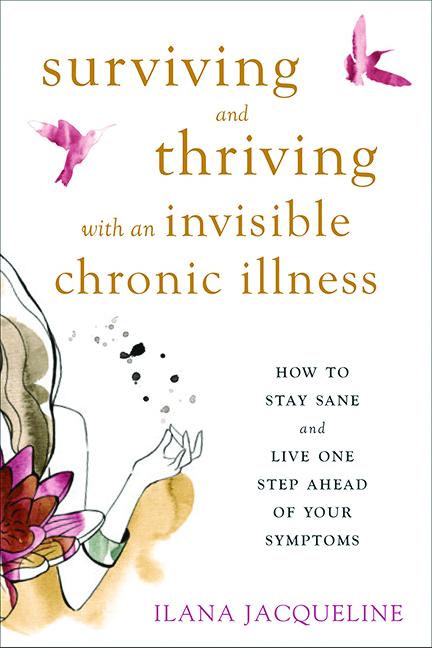Growing up, all I wanted was a guidebook to tell me how I was supposed to manage life with a rare, chronic, complex, invisible disease.
I wanted to know what I was supposed to do while I was going through the diagnostic odyssey–when doctors would brush me off as a hypochondriac. How was I supposed to talk to my teachers or classmates at school about why I was absent so often and for such long periods of time? I wanted someone to tell me how I was supposed to plan for a future in which I didn’t know if I would be healthy, dead, disabled or ever really independent.
What I got instead was enough bad advice to fill a hard drive. From “eat more kale” to “just think positively” to “just keep taking every medication all of your 16 different doctors who don’t communicate are prescribing to you.” The guidance I got was at best well-meaning, and at worst, hilariously offensive and ultimately disastrous.
As I got older and went from having an undiagnosed disease to a diagnosed one—I realized two things:
- Especially for patients with rare diseases, medicine is a practice, and is still evolving. Just because a study suggests a treatment should work doesn’t guarantee it will for every patient.
- The person who should be in charge of my disease management plan wasn’t my mom, my doctors, my insurance company, my hospitalist—it was me.
The responsibility had me frozen with fear: was I taking the right medications? Seeing the right doctors? Was I relying too heavily on Western medicine, and not enough on Eastern? Was I eating right? Exercising right? Planning well enough for a future I couldn’t begin to predict because of my disease?
Where was the instruction manual—on this life, on this body?
Where were the words of wisdom from all of the patients who had been here, who had done this?
I knew there might never be the perfect step-by-step instruction manual on how to handle all of my weird symptoms—but the way they impacted my life: my self-esteem, my relationships, my wallet, and the way I saw myself as a person—didn’t anyone have advice for me on that?
Who was going to tell me how I was supposed to finish school, talk to my judgmental relatives about my condition, start my career, navigate sex, dating and marriage with active symptoms, and live a sustainable lifestyle when my disease was always front and center?
Needless to say, I did a lot of falling on my face both literally and metaphorically. I started blogging about my experience in 2012 and eventually turned that blog into a book called “ –>Chronic Illness.”

I wrote about my mistakes in dealing with doctors, in what to say when people confront you about using a disability pass with an invisible illness — even about how to handle things like holding down a job or finding the kind of support group that was empowering and not depressing.
Most importantly, I wrote about figuring out what “quality of life” meant to me. With currently 95% of rare diseases having no FDA-approved drug treatment, it’s important we know our options in managing pain, side effects, and short-term versus long-term impact of off-label and supplementary treatment.
Using my personal experience as a rare disease patient, along with the stories and advice of other patients, psychologists and even sex therapists—I pieced together the guidebook I wish I’d had all those years ago.
I hope by having this book out there in bookstores and online, patients realize these problems are universal for those with chronic illnesses. There are ways to prevent so much of the social awkwardness and emotional turmoil that come with having diseases like these. Most importantly, I hope they’ll see they’re not alone—that while a disease may be unique in its symptoms and severity, the uncertainty about how to handle “what’s next?” is a fear we all have. Even if we don’t have the medical answers we desperately need—there are still ways to achieve our highest quality of life if we have the tools, empowerment and support to fight for it.
We want to hear your story. Become a Mighty contributor here.
Video by Nick Stephan www.nickstephan.com

